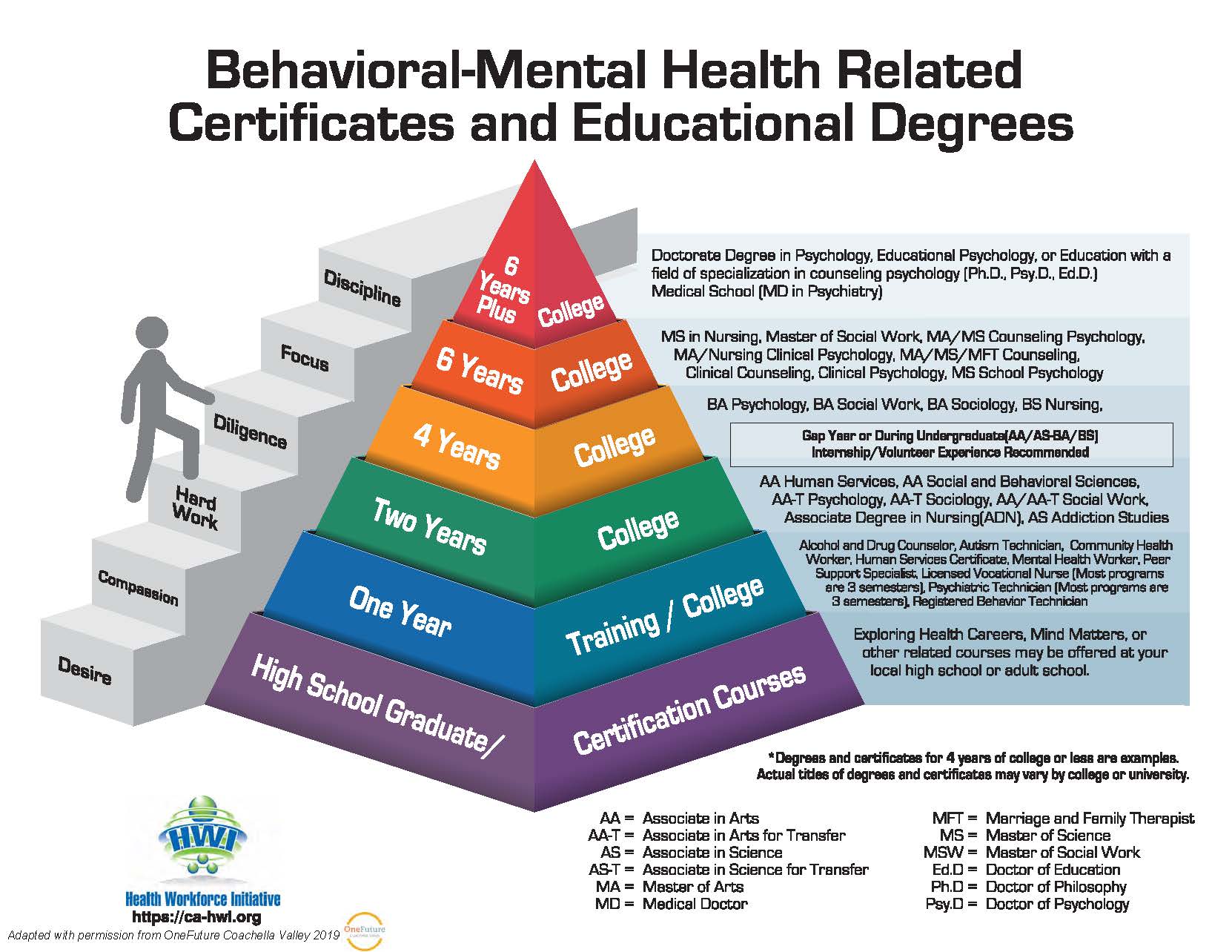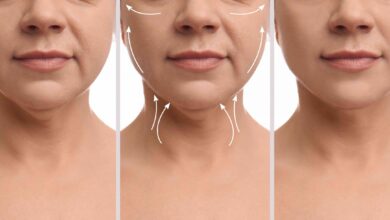Mental Health Degrees: A Comprehensive Guide to Pursuing a Career in Mental Health

Mental health plays a crucial role in the overall well-being of individuals and society. As awareness of mental health challenges grows, so does the demand for qualified professionals in this field. Pursuing a mental health degree can be a rewarding career choice if you’re passionate about helping others overcome emotional and psychological struggles. This guide explore the various mental health degrees available, their opportunities, and how to select the best path for your future.
Introduction to Mental Health Degrees
The Importance of Mental Health
Mental health is vital to overall health, influencing how we think, feel, and act. Issues related to mental health, such as depression, anxiety, and PTSD, can significantly impact one’s quality of life. As mental health issues become more recognized, there’s an increasing demand for trained professionals to support individuals in need. Whether through therapy, counseling, or psychiatric support, mental health professionals are essential to fostering a healthier society.
Overview of Mental Health Professions

Mental health professionals are trained to diagnose, treat, and manage various mental health conditions. These professionals can work in diverse settings, such as hospitals, private practices, schools, and non-profit organizations. With the rise in mental health awareness, there has been a corresponding increase in opportunities within the field. Professionals range from counselors and psychologists to psychiatric nurses and social workers, all offering vital support to those experiencing mental health challenges.
Why Choose a Mental Health Degree?
Pursuing a mental health degree is a meaningful career choice for individuals interested in helping others overcome psychological barriers. This field offers rewarding work and:
- Numerous career paths.
- Allowing professionals to specialize in areas like family therapy.
- Substance abuse counseling.
- Clinical psychology.
Additionally, mental health professionals are increasingly in demand, providing job stability and opportunities for growth in a field that continues to evolve.
Types of Mental Health Degrees
Associate’s Degree in Mental Health
An associate’s degree in mental health typically takes two years to complete and is an entry-level qualification in the field. This program is ideal for those interested in supporting mental health professionals in various roles, such as mental health degrees case management, administrative support, or community outreach. Students learn foundational concepts in psychology, social work, and mental health, gaining the skills needed to work under the supervision of licensed professionals.
While an associate’s degree provides limited career advancement compared to higher degrees, it is a great starting point for those who wish to gain experience in the field. Graduates of an associate’s program can explore roles like mental health technician, behavioral health aide, or caseworker, often working in clinics, hospitals, or social service agencies.
Bachelor’s Degree in Mental Health
A bachelor’s degree in mental health or psychology is a more comprehensive program that takes about four years to complete. Students in this program study a broader range of topics, including cognitive psychology, developmental psychology, ethics, and social work. A bachelor’s degree offers a deeper understanding of mental health issues and prepares graduates for roles such as mental health counselor, crisis intervention specialist, or rehabilitation counselor.
Bachelor’s degree graduates can also pursue further studies in graduate programs or earn certification in specific mental health specialties. While entry-level positions are familiar with a bachelor’s degree, they open the door to further career development through higher degrees or specialized training.
Master’s Degree in Mental Health
A master’s degree in mental health typically takes two years to complete and is often necessary for those who wish to practice as licensed therapists or counselors. Professionals with this degree can specialize in counseling, marriage, family therapy, or clinical social work. Programs generally include both coursework and supervised clinical practice, which equips students with the necessary skills to assess, diagnose, and treat mental health conditions.
Professionals with a master’s degree in mental health can work independently in private practice, provide therapy in clinical settings, or pursue leadership roles in mental health organizations. This degree is ideal for individuals who wish to become licensed counselors or therapists, as many states require a master’s degree for licensure.
Doctoral Degrees in Mental Health
Doctoral degrees, such as a Ph.D. in Psychology, Psy.D. (Doctor of Psychology), or a Doctor of Social Work (DSW), are advanced programs for those aiming to specialize in mental health. Doctoral programs require several years of study and research and are generally focused on clinical practice, research, or teaching. Students in postgraduate programs gain expertise in diagnosing complex mental health issues, conducting psychological assessments, and developing advanced therapeutic strategies.
A doctoral degree in mental health opens up leadership opportunities in research, academia, and advanced clinical practice. Psychologists, for instance, may conduct studies to advance knowledge of mental health or teach at universities. Clinical psychologists with doctoral degrees can also work in highly specialized therapy practices, focusing on areas like neuropsychology, child psychology, or forensic psychology.
Certifications and Licenses
Becoming a licensed mental health professional often requires additional certification or licensure beyond the degree. This typically involves completing supervised hours of clinical experience and passing a licensure exam. The requirements vary by state and profession, but obtaining certification in specific areas (such as addiction counseling or marriage therapy) can expand job opportunities and increase earning potential. Popular certifications include Licensed Professional Counselor (LPC), Licensed Clinical Social Worker (LCSW), and Board Certified Behavior Analyst (BCBA).
Choosing the Right Mental Health Degree for You
Also, consider factors such as program length, cost, and location. For example, an online program might be more flexible for students balancing work and family commitments, while a traditional on-campus program may offer more networking opportunities. Accreditation is another important factor, as it ensures the program meets industry standards, which is essential for licensure.
When deciding which mental health degree to pursue, consider your career goals, personal interests, and the time commitment you’re willing to make. Start by evaluating your long-term goals—do you want to work in a clinical setting, or are you interested in research or policy? Different degrees offer varying career paths, and selecting the right one is crucial for job satisfaction.
Career Paths and Opportunities with a Mental Health Degree
A mental health degree can lead to numerous career opportunities, each offering different challenges and rewards. The most common mental health careers include:
- Clinical Psychologist: Clinical psychologists diagnose and treat mental health disorders using therapy and counseling techniques. They typically hold a doctoral degree and work in private practices, hospitals, or academic settings.
- Licensed Professional Counselor: Counselors provide therapeutic services to individuals with mental health issues. They may specialize in addiction, family therapy, or trauma recovery.
- Social Worker: Mental health social workers assist clients by providing therapy, support, and resources to help them cope with mental health challenges. They may also advocate for social policies that improve mental health services.
- Marriage and Family Therapist: Specializing in treating family-related issues, marriage and family therapists help couples and families navigate emotional difficulties. They often work in private practice or healthcare settings.
Emerging careers in mental health include roles in telehealth counseling, where professionals provide therapy remotely, and mental health advocacy, which involves promoting policies that improve mental health care access.
Challenges and Rewards of Working in the Mental Health Field
Working in mental health can be both emotionally fulfilling and challenging. On the one hand, professionals have the opportunity to make a significant impact on individuals’ lives by helping them manage or overcome mental health conditions. On the other hand, mental health professionals often deal with heavy emotional cases, which can lead to burnout if not handled properly.
Maintaining a healthy work-life balance is crucial for mental health workers, who are often exposed to traumatic situations in their day-to-day work. Practicing self-care and seeking support when needed are essential for maintaining mental well-being while helping others.
Conclusion
Pursuing a mental health degree can lead to a fulfilling career with the opportunity to positively impact lives. Whether you’re interested in becoming a therapist, counselor, or researcher, numerous paths are available to suit your goals. As the demand for mental health professionals continues to rise, pursuing a degree in this field is an excellent way to build a rewarding and stable career.
Frequently Asked Questions (FAQs)
- What is the best degree to pursue for a career in mental health? A master’s or doctoral degree is often required for clinical practice, while an associate’s or bachelor’s degree can serve as a foundation for entry-level positions.
- How long does it take to become a licensed mental health professional? Becoming licensed can take anywhere from two years (for a master’s degree) to six or more years for those pursuing a doctoral degree, plus supervised experience and exams.
- Can I work in mental health with just a bachelor’s degree? Yes, bachelor’s degree holders can work in entry-level positions such as mental health technicians or caseworkers, but further education is needed for clinical roles.
- What is the difference between a psychologist and a counselor? Psychologists typically hold a doctoral degree and focus on research and therapy, while counselors usually have a master’s degree and provide treatment in various specializations.
- How much do mental health professionals make? Salaries vary depending on the role, education level, and location, but mental health professionals generally earn competitive wages, with psychologists and counselors earning the most.




